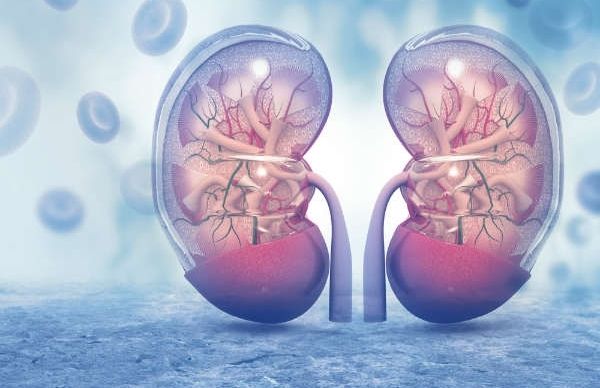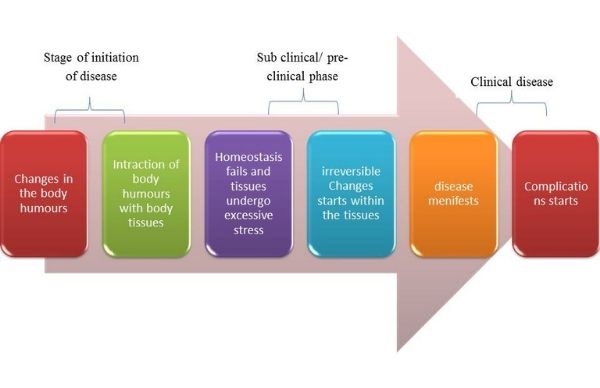Just In
- 1 hr ago

- 1 hr ago

- 5 hrs ago

- 12 hrs ago

Don't Miss
- Sports
 Who Won Yesterday's IPL Match 34? LSG vs CSK, IPL 2024 on April 19: KL Rahul Stellar Batting Show Decimate Chennai Bowling
Who Won Yesterday's IPL Match 34? LSG vs CSK, IPL 2024 on April 19: KL Rahul Stellar Batting Show Decimate Chennai Bowling - Finance
 Rs 17/Share Dividend: Record Date On April 26; Buy The ICICI Group Stock To Be Eligible?
Rs 17/Share Dividend: Record Date On April 26; Buy The ICICI Group Stock To Be Eligible? - Movies
 Chief Detective 1958 Episode 2 OTT Release Date, Time, Platform: When & Where To Watch? What To Expect? DEETS
Chief Detective 1958 Episode 2 OTT Release Date, Time, Platform: When & Where To Watch? What To Expect? DEETS - News
 Chinese President Xi Jinping Orders Biggest Military Reorganisation Since 2015
Chinese President Xi Jinping Orders Biggest Military Reorganisation Since 2015 - Education
 Exam Pressure Does Not Exist; Studying Punctually is Crucial; Says Aditi, the PSEB 2024 Topper
Exam Pressure Does Not Exist; Studying Punctually is Crucial; Says Aditi, the PSEB 2024 Topper - Automobiles
 Suzuki Swift Hatchback Scores 4 Star Safety Rating At JNCAP – ADAS, New Engine & More
Suzuki Swift Hatchback Scores 4 Star Safety Rating At JNCAP – ADAS, New Engine & More - Technology
 Dell Introduces AI-Powered Laptops and Mobile Workstations for Enterprises in India
Dell Introduces AI-Powered Laptops and Mobile Workstations for Enterprises in India - Travel
 Journey From Delhi To Ooty: Top Transport Options And Attractions
Journey From Delhi To Ooty: Top Transport Options And Attractions
Expert Article: Prevent Kidney Parenchymal Disease Holistically With Ayurveda
Chronic renal parenchymal disease is observed to be affecting one in every seven adult populations globally with little higher prevalence in India. Four-fifth of the patients is in stage I to stage III, which can be managed with oral medicine, diet regulations and lifestyle modification. Stage IV and stage V may require advanced medical care and therapeutic procedures like haemodialysis or organ transplant. If the disease progression is restricted, it may reduce the burden on haemodialysis and organ transplant. Organ transplant, though a blessing for patients with kidney disease, has many issues such as availability of organs, risk of rejection, post-transplant immunosuppressant and others. If the disease is identified in the early stage and managed with holistic care, the progression may get delayed, and the disease may not go into stage IV or V.

The disease can occur as a primary illness or as an independent illness or secondary to metabolic diseases like diabetes, hypertension, etc., immunological diseases such as autoimmune disease, and renal stone. The disease is observed with heavy metal toxins, insecticides, pesticides, and others. These toxins are ingested accidentally with food; it has been observed and opined that the insecticides, pesticides, and drugs like DDT remain in the food chain through water and soil contamination, this food when consumed may cause damage to vital organs of the body like the liver and kidney.
Identifying The Problem Early
Ancient Ayurveda scholar Acharya Sushruta whilst describing the progression and ODP (origin, development and progression of disease) narrates that if the morbidity is contained in the early stages of disease (when there are no specific changes in the tissues of the organs) the morbid Doshas doesn't provoke, and this implies that the preventive measures ought to be started before the onset of the problem. This can be done by identifying the problem at the early stage, identifying high-risk groups, and adopting healthy lifestyle measures and holistic medicine.
"सञ्चयेऽपहृता
दोषा
लभन्ते
नोत्तरा
गतीः
|
ते
तूत्तरासु
गतिषु
भवन्ति
बलवत्तराः
||३७||"

There are a few non-specific signs that point to upcoming kidney dysfunctions. These signs are often related to digestive disturbances, irregular bowels, odour changes in urine, etc. A person suffering from diabetes mellitus, hypertension, family history of kidney disease, on therapy with anti-inflammatories, heavy metal exposure, consuming food cultivated in industrial zones may develop the disease in future and they need to be screened periodically. Ageing is also one of the important factors of organ deformities; a person over the age of 60 bears a high risk of developing the disease.
Kidney Dysfunction And Kidney Failure Management
Kidney dysfunction occurs first and eventually leads to kidney failure. Kidney dysfunction is a pre-disease stage in this phase there is no specific clinical presentation but certain changes in the glomerulus (functional unit of kidney start). The two parts of the kidney look normal but there may be certain changes. Once the whole kidney becomes involved, the two parts i.e. cortex (outer part) and medulla (inner part) lost their differentiation. This is an irreversible change, there may be some functional glomerulus remaining in the diseased tissues if these functional units perform their function, there may be the chance that the disease progression stops.
Ayurveda Management Options For Kidney Dysfunction And Kidney Failure Management
Ayurveda offers different treatment options for kidney dysfunction and kidney failure. The different management options available in Ayurveda include holistic management, medicinal management, diet management, purification management, and lifestyle management.
Holistic management means the management that is supported by the ecosystem. A medicine can be sustainable if it reduces the problem, checks the disease, and does not produce short term and long-term adverse drug reactions. It has been observed that herbal medicine is mostly sustainable and observed to be producing considerable positive effects on primary problems and improving quality of life.
Medicinal management - Ancient Ayurveda classics described that urine as a by-product of metabolism. The glomerulus the filtration unit of the kidney is responsible for filtration; this filtrate has many useful body elements and water the distal part of the tubules reabsorbs more than 90% of water and almost all the other elements necessary for the body but doesn't reabsorb metabolic waste chiefly urea and creatinine. This means the urine is saturated and then is stored in the bladder for time being before elimination. Ancient Ayurvedic scholars narrated the management on a physiologic basis and thus management of the urinary apparatus is narrated in Ayurvedic classics. The medicaments that possess diuretic properties, rejuvenation properties, metabolic regulators, etc. were used for the management. Herbs like Gokshru, Punarnava, Durva, Guduchi, Shatavari, Yastimadhu, Varuna, etc. there are more than 100 different Ayurvedic formulations described in Ayurvedic Pharmacopeia (published by govt. of India) for the management of renal disease
Therapeutic purification management - Panchakarma or therapeutic purification process can be done with different medicaments for personalised management. Ancient Ayurveda text Charaka Samhita narrated different 600 means of Vamana (therapeutic emesis) & Virechana (therapeutic purgation) that can be used on the basis of the individual constitution, the extent of disease, pathological changes, individualised management objectives, the status of body tissues, etc. Basti (therapeutic medicated enema) is broad of two varieties and the different medicaments can be used for individualised management. The biggest merit of the Panchakarma procedure is that it may help eliminate toxins, an intermediate product of metabolism, free radicals, and accumulated end products of metabolism.
Lifestyle management - Classical Ayurveda management three-fold management of a disease that corrects the three components of life. The human body is believed to be of three-component viz. Sharir (physical body), Satva (psyche) and Atma (soul) by Yuktivyapashrya (rationalised and evidence-based medical management), Satvavajaya (psychological management - usually non-pharmacological management), and Daivavyapashrya (non-pharmacological management) respectively. Yuktivyapashrya is the rational treatment; it is done as per the needs of the patients through medicine, procedures, surgical, and para-surgical procedures. Satvavajaya corrects psychological factors and Daivavyapashrya includes different offerings, chanting of Mantra, Hom - Havan. It has been observed that these non-therapeutic measures have healing effects. Over and above these measures Yoga and meditation can be employed. At present timings are considered as different healing techniques that have been part of Daivavyapashrya as per Ayurvedic principles.

Diet management - Diet is an integral part of Ayurvedic management. It has been said that if a person observes good diet habits, there is no need for medication. Diet ought to be planned as per the digestive strength of the individual. Diet planning ought to use wholesome food, foodstuff made with a procedure that improves the digestive principle of the diet, with the proper combination. Classically food having brown rice, barley, honey, cow's ghee, a modest amount of green gram, grapes, and restricted amounts of salt (preferably rock salt - idolised) is considered to be good. Eating or chewing sugarcane is also advisable.
Disclaimer - The above details are presented on the basis of ancient ayurvedic classics. This is meant for information and to create awareness about Ayurveda and its different management options. For clarification and details please feel free to contact a qualified Ayurveda physician or the nearest Ayurvedic hospital.
-
 healthWorld Kidney Day 2024: Make These Essential Lifestyle Changes To Ensure Wellbeing Of Your Kidney
healthWorld Kidney Day 2024: Make These Essential Lifestyle Changes To Ensure Wellbeing Of Your Kidney -
 healthExclusive: How Kidney Patients Can Fast During Ramadan Without Compromising Their Health
healthExclusive: How Kidney Patients Can Fast During Ramadan Without Compromising Their Health -
 health5 Signs Your Kidneys Need Attention: Don't Ignore These Warning Signals
health5 Signs Your Kidneys Need Attention: Don't Ignore These Warning Signals -
 health7 Effective Home Remedies For Kidney Disease: Foods, Detox Tea, Juice, And More
health7 Effective Home Remedies For Kidney Disease: Foods, Detox Tea, Juice, And More -
 healthDietary Guidelines For Managing Kidney Stones
healthDietary Guidelines For Managing Kidney Stones -
 healthWorld’s First Reported Case Of Robotic En-Bloc Kidney Transplant Conducted In Prominent Bangalore Hospital
healthWorld’s First Reported Case Of Robotic En-Bloc Kidney Transplant Conducted In Prominent Bangalore Hospital -
 healthDoctor's Opinion: Are Women More Prone To Kidney Infections If UTIs Go Untreated?
healthDoctor's Opinion: Are Women More Prone To Kidney Infections If UTIs Go Untreated? -
 nutritionWorld Kidney Day 2023: 6 Everyday Habits To Keep Your Kidneys Healthy
nutritionWorld Kidney Day 2023: 6 Everyday Habits To Keep Your Kidneys Healthy -
 wellnessExpert-Approved Ayurvedic Herbs For Patients With Chronic Kidney Disease
wellnessExpert-Approved Ayurvedic Herbs For Patients With Chronic Kidney Disease -
 wellnessAmazing Health Benefits Of Banana For Men: Good For Heart, Sexual Problems And Hair Growth
wellnessAmazing Health Benefits Of Banana For Men: Good For Heart, Sexual Problems And Hair Growth -
 wellnessEvidence-Based Health Benefits Of Onion Juice: Weight Loss, Fertility, Diabetes And Many More
wellnessEvidence-Based Health Benefits Of Onion Juice: Weight Loss, Fertility, Diabetes And Many More -
 disorders cureOverdosing On Ginger Could Be Bad For People With These Medical Conditions
disorders cureOverdosing On Ginger Could Be Bad For People With These Medical Conditions


 Click it and Unblock the Notifications
Click it and Unblock the Notifications



